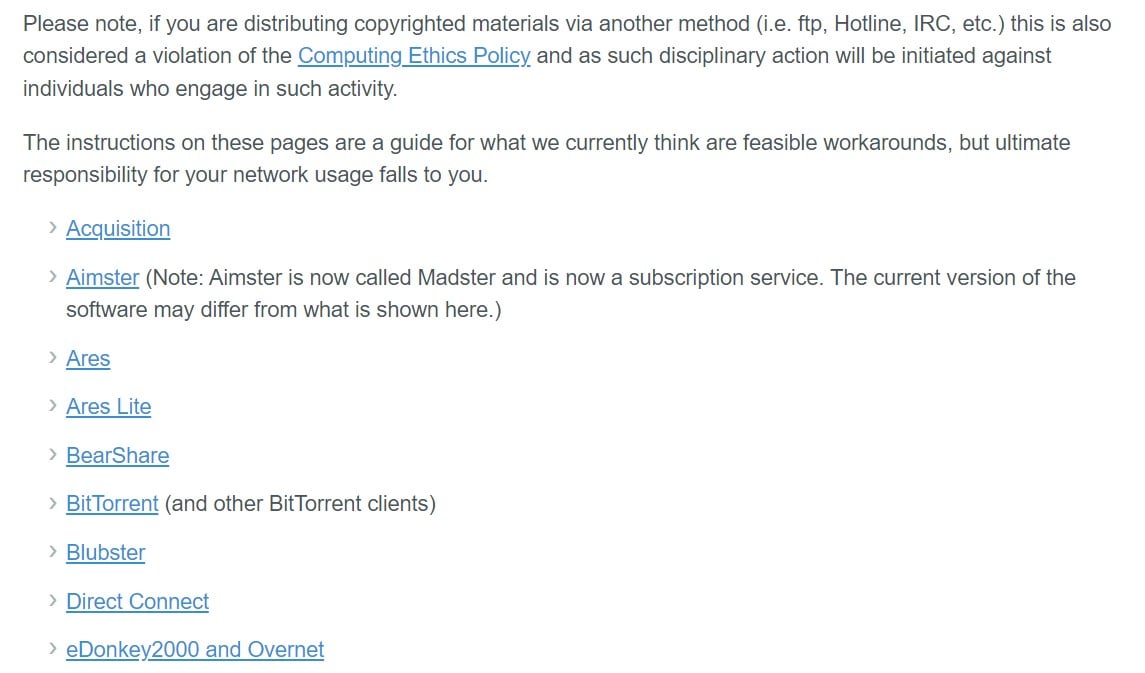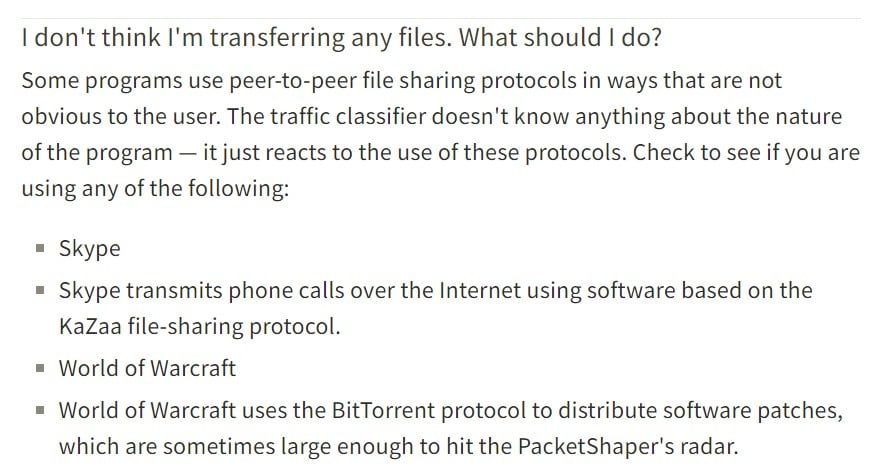At the turn of the century, piracy was booming at university campuses across America and far beyond.
Seemingly unlimited broadband connections and the presence of many tech-savvy students provided an ideal breeding ground for the rapid expansion of the file-sharing craze.
Napster provided the spark and when that shut down, other software applications including Kazaa, LimeWire, and BitTorrent, fueled the fire in the years to come.
HEOA
This virtual free-for-all lasted for years and, in some places, continues to this day. In the United States, however, higher education institutions were forced to put the brakes on piracy due to the passing of the Higher Education Opportunity Act (HEOA) in 2008.
The HEOA requires American universities and colleges to adopt and implement effective anti-piracy policies. These should include technological anti-piracy measures as well as educational material to deter piracy.
If educational institutions fail to properly police piracy, they risk losing federal funding. This is the main reason why all higher education institutions have similarly worded ‘file-sharing’ and copyright warnings in place today.
It’s totally understandable that these policies remain in place. That said, the texts and warnings we ran into while reviewing some this week, could use a bit of an upgrade, to say the least.
Kazaa, BearShare, eDonkey, and eMule…
In the 16 years since HEOA passed, the online piracy landscape has changed dramatically. At the time, LimeWire was the most popular file-sharing tool, and names like Kazaa, BearShare, eDonkey, and eMule, were still top of mind.
These applications are dead and buried now; most collapsed under the weight of legal pressure. However, many American universities still caution their students not to use these applications for nefarious purposes.
A simple Google search instantly reveals dozens of live pages, many of which are updated regularly. For some reason, however, the LimeWire and Kazaa warnings are still front and center.
For example:
“In spite of court rulings holding that it is illegal, some people have continued to engage in so-called peer-to-peer (“P2P”) sharing of commercial copyrighted products, using software programs such as Morpheus, LimeWire, Grokster, and KaZaA. This activity is unlawful,” the University of Vermont cautions.
“It is not recommended to use file-sharing programs such as KaZaa, LimeWire, and Bearshare, unless you are familiar with their configuration,” Truman State University warns.
“Programs like Kazaa, Ares, iMesh and Limewire (Free and Pro versions) are popular ways to share music and movie files across the Internet, but they pose legal and security risks that can result in serious trouble for you – even court cases and fines,” Metro State University cautions.
“Peer-to-peer (P2P) applications such as BitTorrent, BearShare, Limewire, Morpheus, iMesh and KaZaA make it easy for you to share files,” the University of Texas writes.
“P2P typically requires a “client” – a software program installed on their personal computer – to share files. Examples of clients are Kazaa, Limewire, BearShare, uTorrent, etc. and other various BitTorrent clients,” the University of Alabama notes.
“File sharing applications such as KaZaA, BitTorrent, eDonkey, and LimeWire are not illegal, though many people using such applications share illegal materials, and don’t have permission to distribute them,” Brescia University explains.
Blubster, Gnucleus and Shareaza…
The good news is that most universities and colleges recognize that the technology itself isn’t to blame. File-sharing is fine, but piracy isn’t. However, cautioning against the unauthorized use of software that no longer exists is rather pointless.
The most impressive summary of file-sharing applications, which are nearly all defunct, comes from Boston University. Their list includes the following:
Acquisition, Aimster, Ares, Ares Lite, BearShare, Blubster, Direct Connect, eDonkey2000, Overnet, Freewire, Gnucleus, Grokster, GTK-Gnutella, iMesh, Kazaa Lite, Kazaa Lite K++, Kazaa Media Desktop, LimeWire, LordofSearch, Mactella, Morpheus, NeoNapster, OneMX, Phex, Piolet, Poisoned, Qtella, Shareaza, TrustyFiles, Warez P2P, WinMX, and XoLoX.

This list may bring back memories for those who went to university at the start of the millennium. Today’s students, however, will have no clue what it’s about since the pirates among them use more moderns apps and services.
Beware of Skype and World of Warcraft!
The above shows that many educational institutions should update their copyright policies and related file-sharing warnings. In their current form, they don’t make much sense.
This also applies to Stanford University, which has another gem in its “Peer-to-Peer Traffic Advisory“. Apparently, Skype and World of Warcraft, can trigger file-sharing related warnings.
The Microsoft-owned communication app and Blizzard’s popular game relied on file-sharing technology in the past. This is still a concern for Stanford.
“Skype transmits phone calls over the Internet using software based on the KaZaa file-sharing protocol,” Stanford writes.
“World of Warcraft uses the BitTorrent protocol to distribute software patches, which are sometimes large enough to hit the PacketShaper’s radar,” the university adds.

As far as we know, Skype and World of Warcraft no longer trigger P2P detection systems such as PacketShaper, but the caution remains in place. Better safe than sorry, right?
Just to be clear, Stanford’s Peer-to-Peer Traffic Advisory was last updated on March 6, 2024.
—
From: TF, for the latest news on copyright battles, piracy and more.
Source : U.S. Universities Warn Students about Limewire and Kazaa… in 2024














